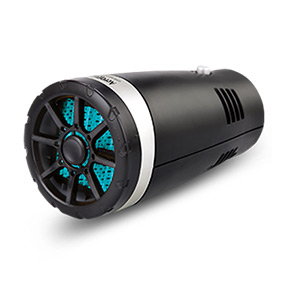Clutch Fluid Line - High-Quality Performance Parts for Your Vehicle
Understanding the Importance of Clutch Fluid Lines in Automotive Systems
When it comes to the functioning of a vehicle's transmission system, the clutch plays a crucial role in ensuring that power is effectively transferred from the engine to the wheels. One of the key components that facilitate this process is the clutch fluid line, which is an often overlooked yet vital part of the hydraulic clutch system. In this article, we will explore the importance of clutch fluid lines and how they contribute to the overall performance and reliability of modern vehicles.
What is a Clutch Fluid Line?
A clutch fluid line, also known as a hydraulic line, is responsible for transferring hydraulic fluid between the clutch master cylinder and the clutch slave cylinder. This transfer of fluid is critical for engaging and disengaging the clutch, which allows the driver to shift gears smoothly. The fluid used in this system is typically brake fluid or a specific hydraulic fluid designed to withstand high temperatures and pressures.
How Clutch Fluid Lines Work
When the driver presses the clutch pedal, the master cylinder generates hydraulic pressure that travels through the clutch fluid line to the slave cylinder. As pressure builds up in the slave cylinder, it activates the release fork, which disengages the clutch plate. This disengagement allows the driver to shift gears without grinding or damaging the transmission components. Releasing the clutch pedal allows the hydraulic pressure to drop, re-engaging the clutch and transferring power back to the wheels.
Importance of Maintenance
clutch fluid line

Like all components of a vehicle, clutch fluid lines require regular maintenance to ensure optimal performance. Over time, these lines can develop cracks, leaks, or blockages due to wear and tear, exposure to extreme temperatures, or corrosion. A damaged clutch fluid line can lead to a loss of hydraulic pressure, making it difficult or impossible to engage or disengage the clutch, resulting in poor gear shifting and potential transmission damage.
Regular inspections of the clutch fluid lines, along with the fluid itself, are crucial for identifying potential problems early. It is recommended to check for signs of leakage and ensure that the fluid level is adequate. If any issues are detected, timely repairs or replacements are necessary to prevent more significant problems.
Signs of Clutch Fluid Line Issues
There are several warning signs that may indicate problems with the clutch fluid line. These include a spongy or unresponsive clutch pedal, difficulty shifting gears, or visible fluid leaks under the vehicle. If a driver experiences any of these symptoms, it is essential to have the system inspected by a qualified mechanic as soon as possible.
Conclusion
In summary, clutch fluid lines play an indispensable role in the operation of a vehicle's clutch system. They facilitate the hydraulic pressure necessary for smooth gear changes and overall transmission performance. Regular maintenance and prompt attention to any signs of trouble can significantly extend the life of a vehicle's clutch system, ensuring a safer and more reliable driving experience. As automotive technology continues to evolve, understanding the importance of every component, including the often-overlooked clutch fluid line, helps maintain the integrity and efficiency of modern vehicles.
-
Upgrade Your Vehicle with High-Quality Handbrake CablesNewsNov.01,2024
-
Optimize Your Bike's Performance with Quality CablesNewsNov.01,2024
-
Enhance Your Vehicle's Performance with Quality Clutch ComponentsNewsNov.01,2024
-
Elevate Your Vehicle's Performance with Quality Throttle CablesNewsNov.01,2024
-
Elevate Your Vehicle's Performance with Quality CablesNewsNov.01,2024
-
Affordable Solutions for Your Cable NeedsNewsNov.01,2024
